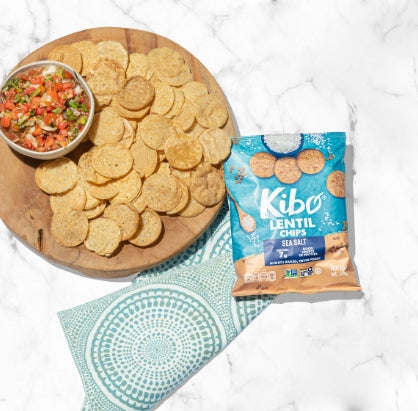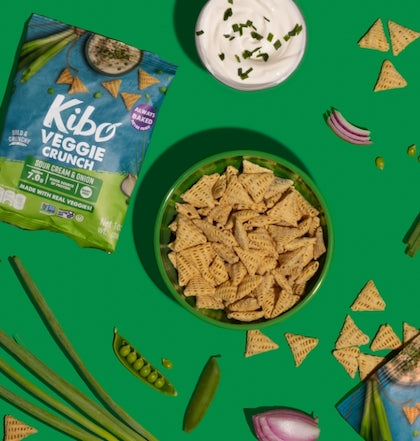Muscle is such an important tissue in the body—and not just for strength and physique. It supports your every movement. It’s a metabolic organ, helping your body digest food and burn fat more efficiently. It helps your body create heat, it’s increasingly crucial as you age, and let’s not forget—the heart is a muscular organ! It helps pump blood throughout your body.
Taking care of your muscle mass is an important part of healthy living no matter who you are, but growing muscle takes hard work and the proper nutrition. If you’re eating mostly vegetarian or vegan, you may need to pay particular attention to your dietary needs to make sure you’re on track. Here’s our complete guide to building muscle on a plant-based diet.
How Do Muscles Grow?
It might seem counterintuitive, but when it comes to building muscle in your body, first you have to tax that muscle. During strength exercises, when the fibers in your muscles are stressed, this creates microscopic rips, which result in inflammation.
But that inflammation signals to your body to send help in the form of blood supply. This ushers in proteins and other resources to repair and ultimately grow those tissues. (No pain, no gain, right?) What that means is that you need to both do the work to tax your muscles and you need the nutrients that will add to your muscle mass.

Focus On Strength Training
If you want to build muscle, you’ve got to focus on weight-bearing exercises that will target these tissues. You’ve already got some body weight to work with just by doing things like pushups and squats—no equipment needed. But eventually, you’ll likely want to introduce some actual weights into the mix if you want to continue to see muscle gains over time. Exercises like bench presses, deadlifts, and weighted squats can all help you build muscle and track your progress over time as you incrementally increase weights and reps.
Finding a personal trainer, studio classes, or workout videos that are targeted for strength training can help you steadily build muscle. It’s a good idea to make sure your instructor is accredited if you want the best and safest training advice.
Up Your Protein Intake
You knew this was coming, so here it is: protein, protein, protein! When it comes to building muscle, having enough available protein in your body for your muscles to draw from is key. When you go vegetarian or lean away from meat in your diet, you’ll likely need to be more mindful of your protein intake. But the good news is, as long as you’re getting adequate protein, there’s no difference between how much muscle you can build versus someone who’s a meat eater.
So how much protein do you need for an active lifestyle? We’ve covered protein needs in previous posts, but for someone who is lifting weight regularly and actively building body weight, you should aim for a good 50% more than you would if you were sedentary. This means that plant-based protein shakes and protein snacks are your new best friend when it comes to getting this macro wherever possible.
Aim to get 20 to 40 grams of protein in the hour after you work out to help with muscle repair.

Complete Protein
You may have heard that amino acids are the building blocks of protein. Out of the 20 that are crucial for your body’s health, there are nine essential amino acids that your body can’t synthesize on its own and that you have to get through your diet. These are:
- histidine
- lysine
- methionine
- phenylalanine
- threonine
- tryptophan
- leucine
- isoleucine
- valine
Those last three (leucine, isoleucine, and valine) are considered the most important for building muscle.
Protein from animal sources contains all these essential amino acids that your body needs, but with plant-based sources, your body needs to mix and match to form what’s called a “complete protein.” So with a plant-based diet, you likely need to focus on getting more protein, and combining proteins to get a full essential amino acid profile.
That comes down to having a varied diet. Focus on colorful plates full of different kinds of food groups and textures. For instance, try a bowl made with all of the following:
- A base of grains or pseudograins like brown rice or quinoa
- Protein like beans, lentils, chickpeas, or tofu
- Leafy greens and fresh, hearty veggies
- A creamy element like hummus or cashew crema
Add Kibo Chickpea Chips or Kibo Lentil Chips to any bowl or meal for an extra 6-7 grams of plant-based protein and crunch!
Free-Form Amino Acids
In addition to protein, there are free-form amino acids that are often sold as pre-workout supplements. If you’re eating mostly vegetarian, you’ll want to be sure you’re considering these aminos.
Beta Alanine
This amino acid is the reason why some pre-workout supplements make your lips and fingers itch! Beta alanine can help you significantly reduce muscle fatigue during resistance training. It helps your body create carnosine, an important amino acid for muscle function, and one that vegetarians are shown to typically have less of in their muscles.
BCAAs
BCAAs stands for branched chain amino acids—a group consisting of those three essential amino acids we talked about earlier that are the most important for muscle building. BCAAs can help you maximize muscle growth while decreasing soreness and fatigue as well as exercise fatigue to help you keep going longer.
Creatine
If you’ve ever taken a sports supplement, you may have noticed creatine on the ingredients list. Creatine is naturally found in your body’s muscles and brain and helps with muscle contraction. It can help you get the most out of your workout for bigger gains in muscle mass. Vegetarians might have lower creatine levels, so this is a good supplement to look out for.
Glutamine
You already know about essential amino acids (that your body needs to get from diet) and non-essential aminos (that your body can make itself), but glutamine is an example of an amino acid that’s “conditionally” essential during intense workouts. Glutamine helps your body repair muscle tissue, particularly after stress from high intensity workouts and weight training.

Other Muscle-Healthy Nutrients
In addition to amino acids, there are several nutrients that are also important for building muscle. Healthy fats and minerals can play a vital role in muscle health. It’s also important to think about electrolytes, which aren’t just good for hydration, but also for muscle function and contraction.
For the best physical performance, it’s generally important to avoid micronutrient deficiencies. If you have a mostly plant-based diet, you’ll want to be sure you’re consuming zinc, iron, selenium, and B12 as well through plant-based sources or supplementation.
Takeaways
We all want to be healthy and strong, and choosing a plant-based lifestyle doesn’t have to be a roadblock to that! If you’re interested in building muscle as a flexitarian, vegetarian, or vegan, focus on strength training exercises and getting plenty of complete protein in your diet. You’ll also want to pay attention to muscle-healthy micronutrients like key minerals and electrolytes. Food is always the first place to look for your nutritional needs, so eat a colorful diet and snack strategically!
Sources:
National Library of Medicine, Protein and Amino Acids
Harvard Health, Building Better Muscle
Healthline, How to Build Muscle While Eating a Plant-Based Diet
National Library of Medicine, Omega-3 polyunsaturated fatty acids and vegetarian diets
National Library of Medicine, Creatine supplementation and exercise performance: a brief review
Healthline, 7 Nutrients That You Can’t Get from Plants
MDPI, Common Ingredient Profiles of Multi-Ingredient Pre-Workout Supplements
Taylor & Francis Online, International society of sports nutrition position stand: Beta-Alanine
Mayo Clinic, Creatine Overview
Medical News Today, What does beta-alanine do?
National Library of Medicine, Health Professional Fact Sheet - Potassium.
National Library of Medicine, Health Professional Fact Sheet - Magnesium
 Reviews
Reviews






